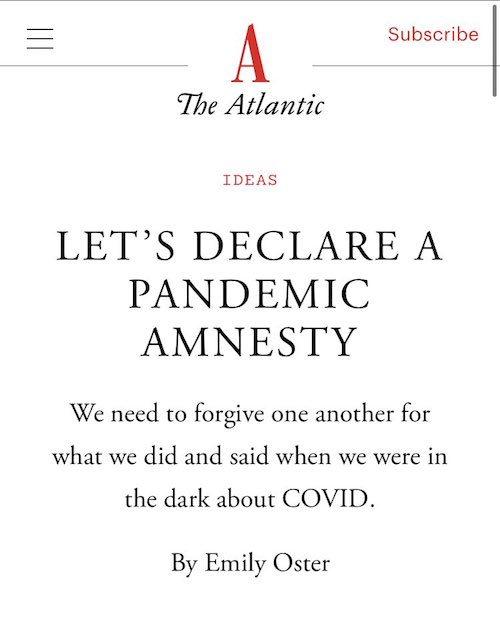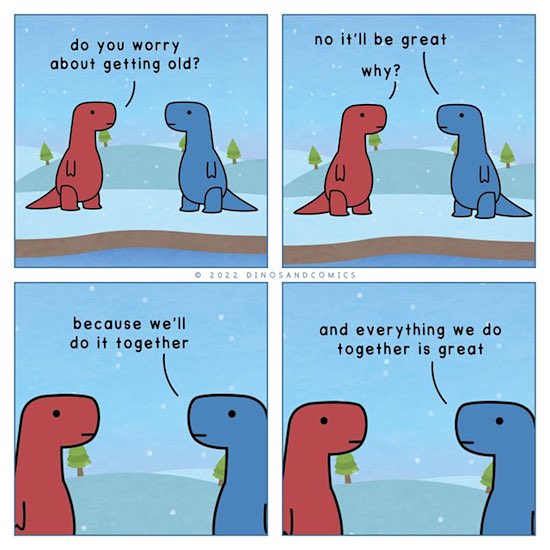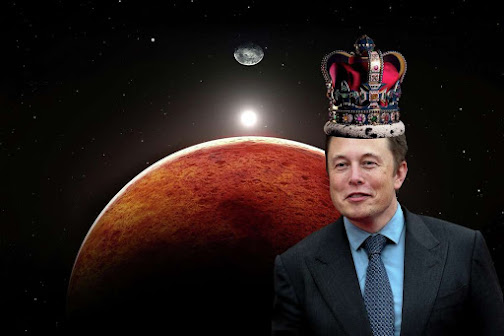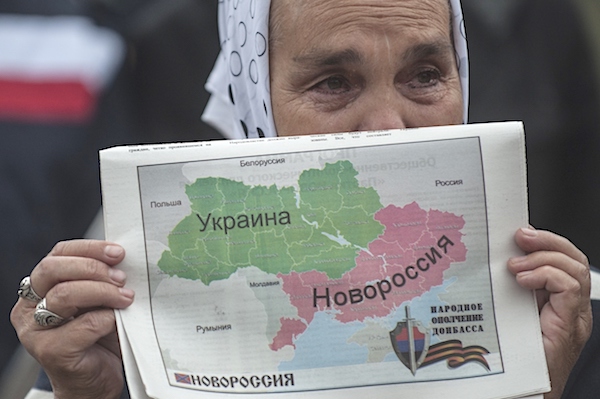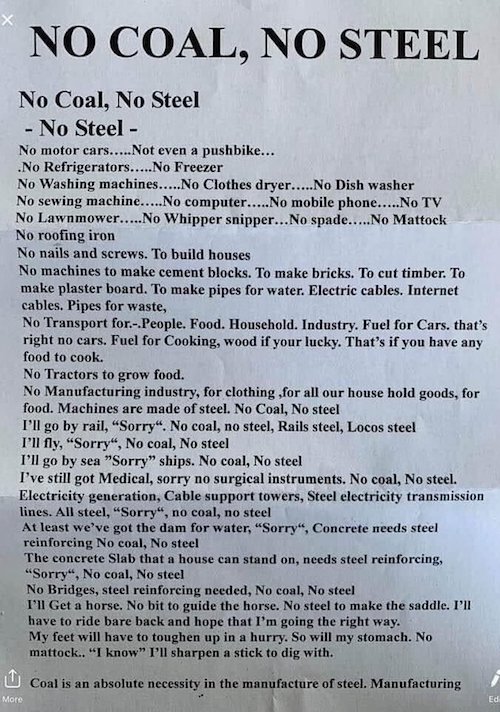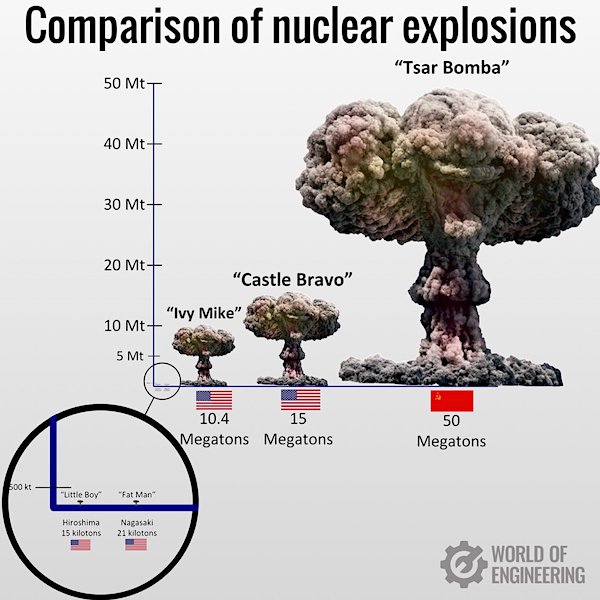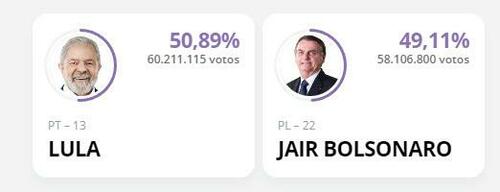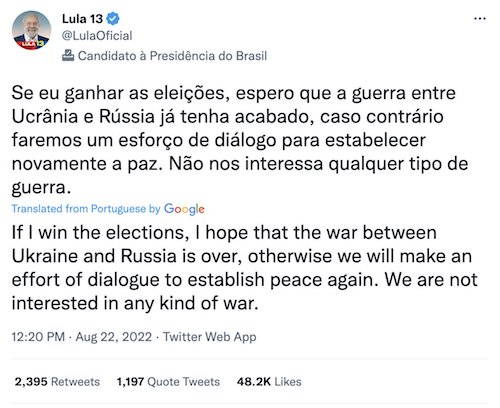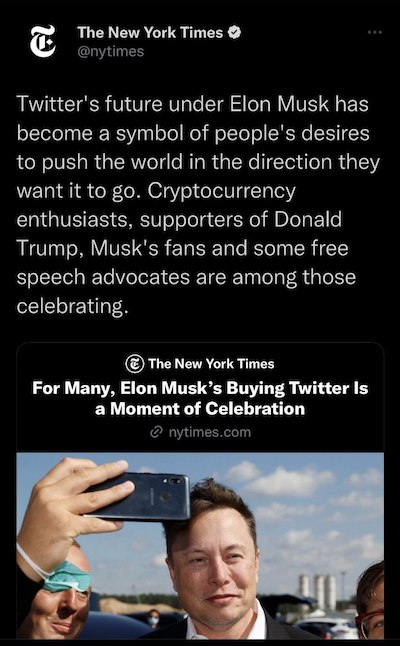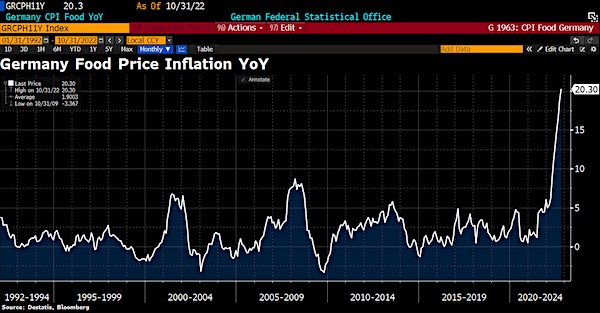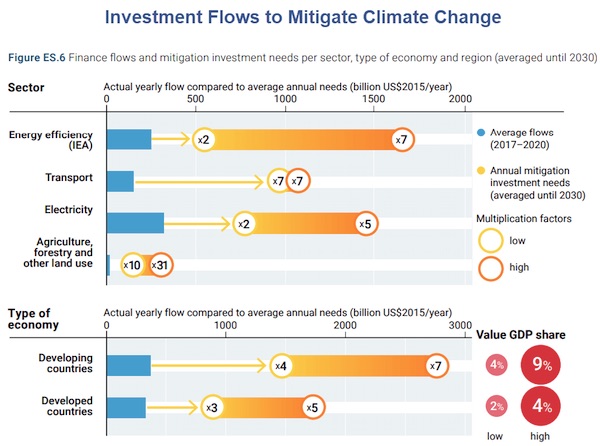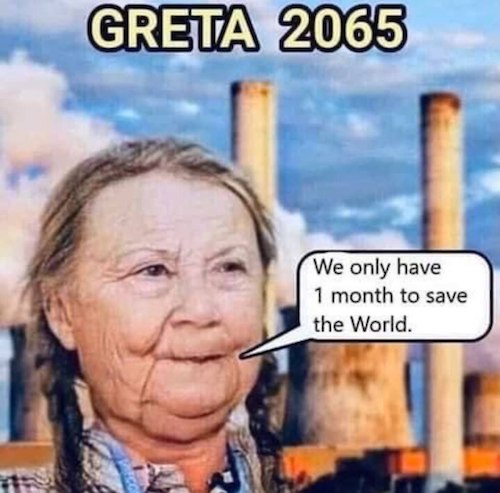
Balthus Girl at a window 1957



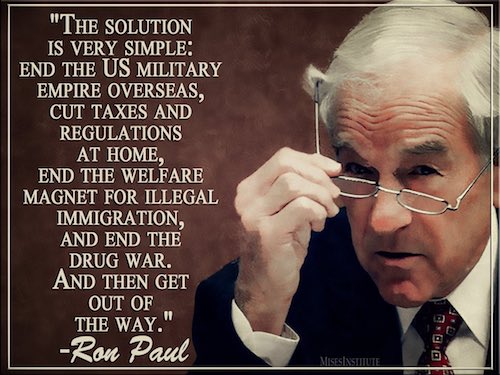

GW
GW is going to be right on source of the virus and the timeline. pic.twitter.com/FT2iW5Gj7q
— George Webb – Investigative Journalist (@RealGeorgeWebb1) November 2, 2022

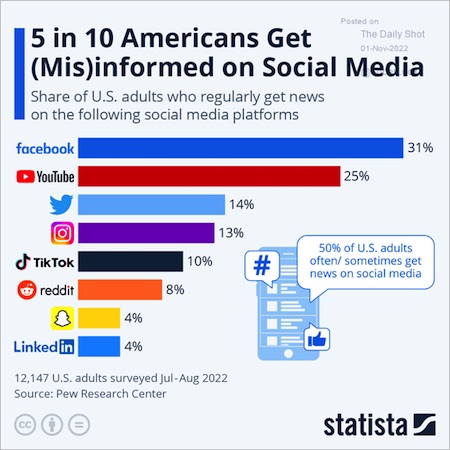


“..this is the start of perhaps inevitable ‘mission creep’..”
• Pentagon Confirms US Boots Are On The Ground In Ukraine (ZH)
Two bombshell reports by the Associated Press and Washington Post Monday and Tuesday have confirmed that the United States has boots on the ground in the Ukraine conflict. Crucially, these troops are performing tasks separate from mere embassy security. The American troops are said to be performing “inspections” of US weapon caches after last week the State Department and Pentagon unveiled a new plan to track US-supplied weapons in efforts to implement accountability for the billions of dollars worth of arms and ammunition transferred to Ukrainian forces since near the start of the war eight months ago.
“A small number of U.S. military forces inside Ukraine have recently begun doing onsite inspections to ensure that Ukrainian troops are properly accounting for the Western-provided weapons they receive, a senior U.S. defense official told Pentagon reporters Monday,” the AP/WaPo reporting revealed. A Pentagon briefing confirmed this “small” contingency of troops has been advised to not do inspections “close” to the front lines of fighting: The official, who spoke on condition of anonymity to provide a military update, would not say where the inspections are taking place or how close to the battlefronts the U.S. troops are getting. The official said U.S. personnel can’t do inspections “close to the front lines,” but said they are going where security conditions allow.
There have already been “several inspections” overseen by U.S. Defense attache and a US Office of Defense Cooperation team based out of the Ukrainian capital. The report underscores that “U.S. President Joe Biden has ruled out any combat role for U.S. forces inside Ukraine.” However, what’s clear is that despite the White House’s ruling out of “combat” troops, this is the start of perhaps inevitable ‘mission creep’ – as has been seen in other conflict zones (such as Syria). If US troops are doing inspections of Ukrainian arms and ammo, and presumably Russia is currently targeting any and all Ukrainian military bases, this puts American troops and assets in Russia’s crosshairs, greatly increasing the possibility that the US and Russia could stumble into a direct shooting war.

“Hey I’m sorry we scared the hell out of you & lied for years & persecuted & censored anyone who disagreed but there was an election going on & we really wanted to beat Donald Trump so it was important to radically politicize the science even if it destroyed your children’s lives.”
• Outrage Ensues After The Atlantic Suggests ‘Amnesty’ For Pandemic Authoritarians (ZH)
The Atlantic has come under fire for suggesting that all the terrible pandemic-era decisions over lockdowns, school closures, masking, and punishing an entire class of people who questioned the efficacy and wisdom of taking a rushed, experimental vaccine – for a virus with a 99% survival rate in most, should all be water under the bridge. “We need to forgive one another for what we did and said when we were in the dark about COVID,” writes Brown Professor Emily Oster – a huge lockdown proponent, who now pleads from mercy from the once-shunned. “Let’s acknowledge that we made complicated choices in the face of deep uncertainty, and then try to work together to build back and move forward,” she continues. Except, they weren’t “in the dark” about Covid.
There were numerous sources pointing out the actual science that ran contrary to the mandate claims, and they were deliberately silenced by a vast media campaign. Evidence suggests that media platforms worked in tandem with Big Tech, the CDC and the Biden Administration. It was not a simple matter of overreaction, there was collusion to remove all counter-information. Nice try, Emily. As the Daily Sceptic’s Michael P. Senger puts it: “There’s a lot wrong here. First, no, you don’t get to advocate policies that do extraordinary harm to others, against their wishes, then say, “We didn’t know any better at the time!” Ignorance doesn’t work as an excuse when the policies involved abrogating your fellow citizens’ rights under an indefinite state of emergency, while censoring and cancelling those who weren’t as ignorant. The inevitable result would be a society in which ignorance and obedience to the opinion of the mob would be the only safe position.”

And look at that ratio: In one epic Twitter thread, Claremont Institute Senior Fellow Matthew J. Peterson (@docMJP) excoriates Oster’s entire premise; “Hey—sorry you lost your job b/c of the vax that doesn’t work and your grandmother died alone and you couldn’t have a funeral and your brother’s business was needlessly destroyed and your kids have weird heart problems—but let’s just admit we were all wrong and call a truce, eh? It’s too bad we shut the entire economy down & took on tyrannical powers that have never been used before in this country—looking back, you should have been able to go to church and use public parks while we let people riot in the streets—but it was a confusing time for everyone.
Hey I’m sorry we scared the hell out of you & lied for years & persecuted & censored anyone who disagreed but there was an election going on & we really wanted to beat Donald Trump so it was important to radically politicize the science even if it destroyed your children’s lives. OK, yes we said unvaccinated people should die & not get healthcare while never questioning Big Pharma once but we are compassionate people which is why even though we shut down the entire economy we also bankrupted the nation & caused inflation. You’re welcome! Let’s be friends.”As QTR’s Fringe Finance notes, Oster’s plea for the decency that her ilk failed to offer up to most Americans during the throws of the pandemic comes at a point where the Covid narrative has been all but lost by the Democrats and the mainstream media.
There have been several recent large wins for the unvaccinated who had the constitution and backbone to stand up for themselves throughout a year of being constantly berated and ferociously scorned as second class citizens.
https://twitter.com/i/status/1587148452055629826

Starting with Emily Oster and the Atlantic..
• We Need Covid Accountability, Not Amnesty (QTR)
And now Emily Oster has the gall to write a ho-hum style piece calling for “amnesty” with nary a worthy apology to be seen? Don’t get me wrong, it’s nice to see any common sense making its way through the cracks. I support the apologies to the unvaccinated and the court rulings because I think they are just. I haven’t been gloating about them because I’m over the topic in general and because I’m simply ready to move on and not dwell on it. But the same hubris and arrogance that caused all of this poor decision-making to begin with is still dripping off of The Atlantic’s latest “mea culpa”, which makes an attempt to rewrite history and trivializes the trauma many endured. “Some of these choices turned out better than others,” the article casually writes at one point.
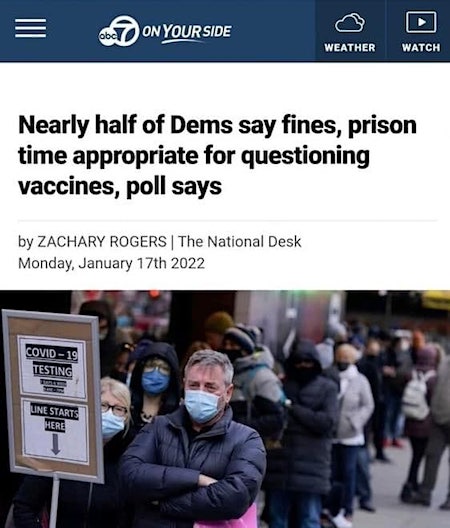
At another point, like an alcoholic who can’t stop himself from taking another swig from the bottle, it begrudgingly has to make a perfunctory and obligatory reference to “misinformation”: We have to put these fights aside and declare a pandemic amnesty. We can leave out the willful purveyors of actual misinformation while forgiving the hard calls that people had no choice but to make with imperfect knowledge. Instead of an apology, we are left with this kumbaya moment: The standard saying is that those who forget history are doomed to repeat it. But dwelling on the mistakes of history can lead to a repetitive doom loop as well. Let’s acknowledge that we made complicated choices in the face of deep uncertainty, and then try to work together to build back and move forward.
The Atlantic article can lead me to only one conclusion: many of the left simply don’t know how to apologize. After all, it wasn’t enough to tell honest people that they were wrong during the course of the pandemic for decisions that turned out to be right, The Atlantic now wants to tell them they’re wrong again if they don’t forgive those who made their lives hell over the last two years. A little tip for The Atlantic: next time, write a piece focused on apologizing instead of issuing orders about exactly how, when and why people should be forgiving you. In case you didn’t notice, it was trying to micromanage other peoples’ lives that got you in this mess in the first place. Talk to us when you offer up accountability, not amnesty.


Professor Sergey Karaganov, honorary chairman of Russia’s Council on Foreign and Defense Policy, and academic supervisor at the School of International Economics and Foreign Affairs Higher School of Economics (HSE) in Moscow
• New World Order: The West Will Have To Live Within Its Means (Karaganov)
We are living in a dangerous period, on the brink of a full-fledged third world war that could end humanity’s existence. But if Russia wins, which is more than likely, and the hostilities do not escalate into a full-blown nuclear conflict, we should not look at the coming decades as a time of dangerous chaos (as most in the West are saying). We have been living in this period for a long time. It will be, if we choose a world of constructive creation and the attainment of freedom, justice and dignity by peoples and nations. The old system of institutions and regimes has already collapsed (freedom of trade and respect for private property). Meanwhile, institutions like the WTO, the World Bank the IMF, the OSCE and the EU are, I am afraid, reaching their last years.
New bodies are beginning to emerge to which the future belongs. They are the SCO, ASEAN+, the Organisation of African Unity and the Regional Comprehensive Economic Partnership (RCEP). The Asian Development Bank is already lending many times more than the World Bank. Not all new institutions will survive, and let us hope that a number of them will survive, especially in the UN system, which urgently needs reform to primarily represent the Global Majority in the secretariat, rather than the West. The main thing is to prevent a losing West from stalling history or derailing it through a world war. Not only Global Majority countries, but Western countries can live quite happily in this world.
The West will simply lose the opportunity to plunder the rest of the planet and it will have to shrink a bit. They will have to live within their means. I am afraid that this new world taking shape now will be created beyond my intellectual or physical life. But my young colleagues and certainly their children will see it. But this beautiful vision has to be fought for, first of all by preventing a third world war, because of the attempted revenge of the West. Again, it was in Europe that the first two world wars were unleashed. Russia is now fighting, among other things, to ensure that the prerequisites for a third are not ripe. But conflicts will occur in an era of rapid change. So the struggle for peace should be one of the main themes of our intellectual community and the world at large.

Wonder how this will end.
• Zelensky ‘Nullified’ Grain Shipping Deal – Russian Duma Speaker (RT)
Ukrainian President Vladimir Zelensky has rendered the internationally brokered grain shipping agreement void by using the safe passage in the Black Sea to strike Russian warships, Vyacheslav Volodin, the speaker of the State Duma, the lower house of Russia’s parliament, said. Moscow claims that Kiev dispatched attack drones via the route designated for grain vessels. “The resumption of the grain deal is impossible as long as the safe corridor is being used for terrorist attacks,” Volodin wrote on his Telegram channel on Tuesday. “With his actions, Zelensky has nullified all of the agreements that were brokered by Türkiye and the UN. ”The senior legislator said the use of the safe corridor for the attack on Russia’s Black Sea Fleet is “unacceptable” and that the grain agreement “cannot exist on the old terms.”
Under the deal struck in July, the sides agreed to unblock the export of grain and other agricultural products from Ukrainian ports. Ukraine, a major producer, is among the vital suppliers of wheat, corn, and barley. On Saturday, Moscow accused Kiev of sending aerial and seaborne drones to strike warships in the city of Sevastopol in Crimea, which hosts a naval base. A minesweeper was damaged in the raid, according to the Russian Defense Ministry. The ministry claimed that the drones moved along the corridor set up for grain ships, and that one device may have been launched from a civilian vessel hired to transport grain. Moscow also said that a British Navy unit masterminded the attack. London has dismissed the accusation. Russia subsequently announced the closure of the corridor on Monday.
Zelensky accused Russia of blackmail and “deliberately exacerbating the food crisis.” Speaking to reporters on Monday, Russian President Vladimir Putin said that only 3-5% of grain that had been shipped through the safe corridor went to poorer countries. The UN, however, reported last month that 27% of the ships went to “low and lower-middle income countries” such as Egypt, Kenya, and Bangladesh. It said that 26% went to “upper-middle income countries” such as Türkiye and China, while 47% went to “high-income”nations such as Spain and Italy.

“Western insurance companies, despite official permission, refused to insure cargoes of food and fertilizers from Russian ports under various pretexts.”
• There Will Be No Deal – Zelensky Broke The Rules! (Milacic)
Just a few hours after the attack by sea “drones” on the ships of the Black Sea Fleet of the Russian Federation in the early morning of October 29, the Russian Foreign Ministry announced the suspension of the “grain deal” – an agreement that had been in force since July 22 of this year. The fact that Russian military claims that naval drones have passed through the territory included in the “grain deal”, where there is no Russian fleet – it only made that decision stronger! The “grain deal” allowed Kyiv to freely export grain from the Black Sea ports under the auspices of the UN, in exchange for some easing of sanctions against Russian exports of grain and fertilizers. Formally, this agreement was strictly humanitarian and its sole purpose was to provide grain to the countries of Africa and Southeast Asia, dependent on food imports.
During the passage of the Bosporus, ships traveling from Ukraine and back were examined by UN inspectors to exclude the possible import and export of prohibited goods. But the Kremlin did not receive its benefit from the deal … Ukraine, having unblocked the export of grain by sea, at the same time was able to unload land communications and receive a significant income from the export of agricultural products. In addition, its Western partners were once again able to resell Ukrainian grain, which, with the outbreak of hostilities in Ukraine, rose significantly in price. But Russia continued to face difficulties in securing the export of its grain. Western insurance companies, despite official permission, refused to insure cargoes of food and fertilizers from Russian ports under various pretexts.
At the same time, information was increasingly appearing in the media that American and European authorities were putting significant pressure on insurers. Naturally, Moscow was more and more dissatisfied with the terms of the deal concluded before November 19 and doubted the possibility of its extension. The attack on Sevastopol gave the Kremlin a great trump card – the deal was instantly suspended, although the Russian fleet did not suffer significant damage. The military response of Russia also followed very quickly, the communications center and the base of the special forces of the Ukrainian fleet in Ochakiv were destroyed. However, both the attack on the Russian base and the actual breach of the deal with Russian exports are just the tip of the iceberg.

“Currently, Russia is “not ready to say” what conditions would have to be met for it to resume its participation in the deal.”
• Russia Offers Alternative To Ukraine ‘Grain Deal’ (RT)
Russia is ready to provide poorer grain-importing nations with supplies from its own stocks to replace Ukrainian exports, Kremlin Press Secretary Dmitry Peskov told journalists on Monday. Earlier, Russia suspended its participation in the so-called “grain deal” with Ukraine following an attack on its navy base in Sevastopol. “We can guarantee the Russian side’s readiness to compensate for the missing [grain export] volumes from its own stocks,” Peskov said. Earlier, Russian Deputy Foreign Minister Mikhail Bogdanov said Moscow would continue to support African nations despite halting its compliance with the pact. The Kremlin spokesman also said only a tiny portion of all Ukrainian agricultural products exported under the deal were destined for the poorest nations anyway, while “not-so-poor nations located in Europe got the rest.”
Moscow also believes that the grain deal between Russia and Ukraine, which was reached in Istanbul with UN and Turkish mediation, is now in limbo for security reasons. “The deal could hardly be implemented when Russia says it cannot guarantee maritime security in the designated waters” of the Black Sea, Peskov said, adding that the implementation of the agreement is now “much more risky, dangerous and not guaranteed.” The Kremlin has not said the deal is dead altogether, however. Moscow is “still in contact” with other parties, including the UN and Türkiye, Peskov said. Currently, Russia is “not ready to say” what conditions would have to be met for it to resume its participation in the deal.
Under the agreement reached in July, Russia provided a secure “grain corridor” through the Black Sea waters to facilitate the exportation of Ukrainian agricultural products. The agreement was praised as critical for easing the global food crisis and helping the world’s poorest nations to avoid starvation. Last week’s decision by Russia to halt its compliance with the deal caused a grain price surge. Moscow suspended its participation in the deal last week after a massive drone attack on its naval base in the Crimean port city of Sevastopol. According to the Russian Defense Ministry, the naval drones launched as part of the attack used the grain corridor to reach their targets and one of them may even have been launched from a civilian vessel supposedly chartered to ship Ukrainian grain.
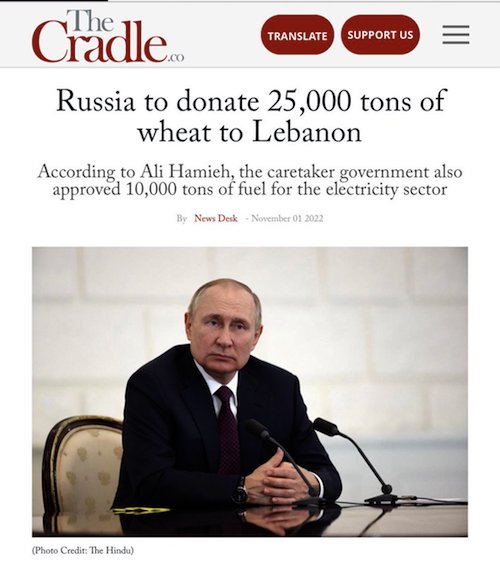

“Moscow is now ready to supply African nations with “large volumes” of grain and fertilizers out of its own stocks for free..”
• Russia Demands Black Sea Corridor Guarantees From Ukraine (RT)
Kiev should provide “real guarantees” that it would not use the Black Sea corridor created as part of an Istanbul grain deal in its military activities, Russian President Vladimir Putin told Turkish President Recep Tayyip Erdogan in a phone conversation on Tuesday. The two were discussing the circumstances that could convince Moscow to return to its own commitments under the agreement. Russia indefinitely suspended its participation in the deal last week following a massive drone attack on its naval base in the Crimean port city of Sevastopol. Some of the naval drones launched by Kiev allegedly used the Black Sea grain corridor’s security zone to close in on their targets, according to the Russian military.
“It is necessary to conduct a detailed investigation of … this incident, as well as to get real guarantees from Kiev that it would rigorously abide by the Istanbul agreements, including the non-use of the humanitarian corridor for military purposes,” the Russian president said, according to the Kremlin’s press release. Russia would only consider re-opening this corridor if that happened, Putin added. He also pointed out that the part of the deal that involved lifting restrictions on Russia’s own agricultural and fertilizer exports had never been implemented. The corridor was touted as a way to secure food supplies to the neediest nations as a matter of priority. But this goal has not been reached in the three months since the agreement was established, Putin noted. “Moscow is now ready to supply African nations with “large volumes” of grain and fertilizers out of its own stocks for free, the president confirmed.
The Russian military closed the Black Sea grain corridor on Monday, arguing that its security could not be guaranteed while Kiev used it for military purposes. Moscow had previously blamed Ukraine and UK Navy specialists for the attack on Sevastopol. London has dismissed the accusation. The Russian Defense Ministry said that the corridor would stay closed at least until all the circumstances of the attack were established. Russia has also repeatedly said that it has not left the deal entirely but only suspended its own commitments under the agreement. In the wake of Moscow’s decision, the UN insisted that “food must flow” regardless of the circumstances. Civilian vessels “can never be a military target or held hostage,” the UN coordinator for the Black Sea grain initiative, Amir Abdulla, said.

“Ukrainian troops are shelling the region almost on a daily basis, threatening the lives and safety of people, but they keep silent about it, while expressing concerns about the fish..”
• Russia Responds To Kiev’s Nuclear Plant ‘Hypocrisy’ (RT)
Kiev’s accusations that Moscow is responsible for an alleged environmental disaster at the Zaporozhye Nuclear Power Plant sound hypocritical, given that Ukraine has been constantly targeting the facility, Vladimir Rogov, a member of the administration of Russia’s Zaporozhye Region, said on Tuesday. His statement comes after the Ukrainian state-owned operator, Energoatom, claimed that Russian actions had led to a massive die-off of fish in the facility’s cooling pond.Rogov denounced Kiev’s accusations as the “wildest hypocrisy that knows no bounds.” “Ukrainian troops are shelling the region almost on a daily basis, threatening the lives and safety of people, but they keep silent about it, while expressing concerns about the fish,” he told RIA Novosti.
Moreover, he noted that the plant’s energy units had been shut down precisely because Kiev’s forces have been constantly targeting the area around the facility. On Monday, Ukraine’s Energoatom said that the shutdown of the plant’s energy units had resulted in a decrease in the water temperature in the cooling pond, which led to “mass fish death.” The fish had been “performing a sanitary function” by destroying the green algae and cleaning the cooling tubes of the turbine condenser, it said. However, Ukraine had gone to great lengths to paralyze the plant’s operations and prevent it from coming online again, according to Rogov.
The Zaporozhye Nuclear Power Plant, which is Europe’s largest, has been under Russian control since March. Last month, Russian President Vladimir Putin officially placed the facility under Moscow’s management. The Russian leader signed the relevant order as Moscow was finalizing the accession of Zaporozhye and Kherson Regions, as well as the Donetsk and Lugansk People’s Republics, to Russia following referendums that overwhelmingly supported the move. Russia has on numerous occasions accused Ukraine of shelling the Zaporozhye facility, warning that the attacks could lead to a nuclear disaster. Kiev has denied the allegations, blaming Russia for the shelling instead.

“Musk is looking for ways to reduce the dependency on advertisers and many of us would support that effort.”
• Blue Checkers Revolt Over Musk’s Threatened Monthly Charge (Turley)
As a regular MSNBC pundit is calling for Elon Musk to be stripped of his citizenship for trying to reintroduce free speech protections to Twitter, the new owner is outraging blue checkers by suggesting a monthly charge for verified users. Figures like CNBC’s Jim Cramer declared: “I’m not paying them anything. They should pay me.” Some of us would be willing to pay an added monthly fee to support a true free speech alternative on social media if Musk keeps his word. Of course, for full disclosure, I would first have to get a blue check to get charged for a blue check. I have been barred from being verified for years by Twitter despite being a columnist for newspapers like USA Today and the Hill as well as a legal analyst for CBS, NBC, BBC, and now Fox over the last two decades.
I have been ranked in the top five law professors on Twitter, but I was still turned me down over a dozen times under multiple categories. I have previously joked about the bar on verification and I am not sure how much the blue check honestly does for individuals. Indeed, there are some advantages. I can presumably deny prior statements since they were made by an entirely unverified person using my name for over a decade. Yet, as a long-time critic of Twitter’s censorship system, there has been a long curiosity over the denial. Musk has indicated that he is now looking into such concerns and there may be greater transparency in the weeks to come. However, Musk is looking for ways to reduce the dependency on advertisers and many of us would support that effort.
Recently, General Motors suspended advertising on Twitter until it can evaluate the implications of Musk’s new policies. Some of us immediately criticized the action by GM over the move. The company had no problem with supporting Twitter when it was running one of the largest censorship systems in history — or supporting TikTok (which is Chinese owned and has been denounced for state control and access to data). Twitter has been denounced for years for its bias against conservative and dissenting voices, including presumably many GM customers on the right. None of that was a concern for GM but the pledge to restore free speech to Twitter warrants a suspension.
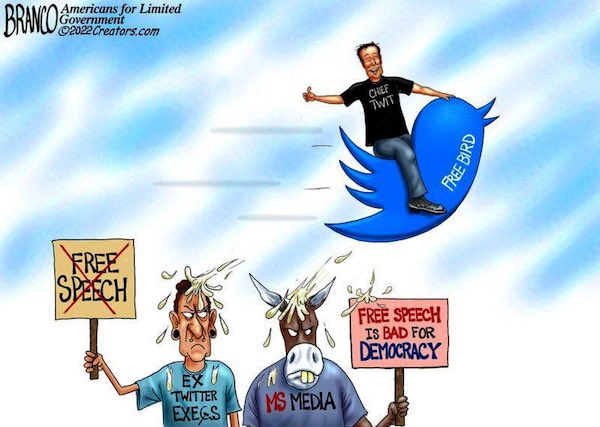

“..rolling blackouts could happen during “those deepest darkest evenings in January and February..”
• UK Households Face ‘Very, Very Hard’ Winter – National Grid (RT)
Many British households will struggle to pay energy bills this winter that could be double what they are accustomed to despite a government price cap, the National Grid’s CEO, John Pettigrew, has warned. In an interview with the Financial Times on Tuesday, he said he was “under no illusions” and that Brits would find the upcoming winter “financially very, very hard.” “Even with the [taxpayer-funded] price cap this is a doubling-up of what people are used to paying for their energy bills,” Pettigrew said, adding: “Therefore, inevitably there are going to be people who are going to struggle.” The British government has capped the unit cost of energy until April, meaning that an average household would pay about £2,500 ($2,885) over a year on average.

But last winter the equivalent amount was £1,277 ($1,474). Each household will also receive a £400 rebate on utility bills with additional means-tested payments through Social Security benefits. However, that will still be unable to make up the difference given the soaring energy prices. Pettigrew said the National Grid was working on a number of emergency plans to protect the UK against a shortfall of energy from Europe. Earlier, the grid operator’s boss warned that the country could face power cuts on “really cold” evenings this winter due to Europe’s continuing energy squeeze. He said that rolling blackouts could happen during “those deepest darkest evenings in January and February,” likely between 4pm to 7pm.
Such measures were “unlikely,” according to Pettigrew, who warned, however, that there were potential scenarios where Britain’s power generators would fail to secure sufficient supplies from Europe. Normally, during the coldest months and extreme weather events, the UK imports gas and electricity from continental Europe for its gas-fired power plants. However, this year European countries are themselves facing a severe energy crisis exacerbated by anti-Russian sanctions and a sharp decrease in Russian energy supplies.

Top spot for craziest story.
So far, police have not disclosed how DePape journeyed from Berkeley to Pacific Heights at 2:00 o’clock in the morning, about fourteen miles. Did he walk from Berkeley across the Bay Bridge and then halfway across town? Mr. DePape is apparently also known to the police as a gay hustler, that is, a person who sells sex for money. Unless I’m mistaken, the San Francisco Police Department (SFPD) has a detective department — experienced men and women who go around the city seeking clues, evidence, and testimony in order to make sense of perplexing crimes — and then solve them! Shall we assume they are on-the-job? Now, Paul Pelosi, 82, who made a $300-million fortune running a car service (also shrewd investments in real estate and the stock market), has been in quite a bit of trouble this year.
On May 28, 2022, he was arrested for Driving Under the Influence (DUI) in Napa (near a vineyard estate he owns with Nancy) when his 2021 Porsche crashed into a 2014 Jeep driven by one “John Doe” (as the police identified him). KGO-TV, ABC’s affiliate in the San Francisco area, said that there was a second person in the Porsche with Pelosi at the time of the accident. He has never been identified. In August, Mr. Pelosi was sentenced to five days in jail, a fine of roughly $7,000, a three-month drinking-and-driving course, eight hours of public service, and having an “interlock” device installed on his car that would require him to blow into an alcohol sensor before the engine can ignite. By any chance, were the Napa Police or the County Court contacted in the matter at some point by the US Capitol Police or the FBI? We may never know.
If David DePape didn’t walk fourteen miles from Berkeley to Pacific Heights, or take a cab (expensive), how did he get there? Here’s a theory: he rode the BART subway from Berkeley to the Church Street and Mission station in the city, a five-minute walk to the Castro, San Francisco’s fabled gay district. Sometime before 2:00 a.m. closing time, he met up in a bar there with Paul Pelosi, who drove DePape to the Pelosi house in a car not equipped with an interlock device. That is to say, David DePape was let into the house by Mr. Pelosi. The police and the news media have theorized that DePape broke into the place by smashing a glass door in back. Uh-huh…. Ask yourself: would there not be an alarm system at least on all the ground floor windows and doors in the house? Would there not be security cameras on the back side of the house — the side that burglars might prefer, if they could get over the wall?
Would the Speaker of the House, with a discretionary budget on top of a $300-million fortune, and in a time of epic political rancor, not have a team of security guards in place at her private home? Initial news media chatter had both DePape and Paul Pelosi dressed in their underwear, struggling over a hammer which turned out to belong to Mr. Pelosi. Not until the police entered the house did DePape wrest the hammer from Mr. Pelosi and commence to brain him with it. What does the arrest report actually say about the two men’s state-of-dress? It is not public information. How and why were the police just watching until DePape assaulted Mr. Pelosi — who was hospitalized afterward and had surgery on his cracked skull? (Uh, how did a blow that literally broke his skull not kill the elderly Mr. Pelosi?)

“what would we do without the Banker to guide us!?”
• The Tale of Two Greedy Landlords (Catte Black)
Once upon a time in a land far away and in a time of plenty there were two rich and prosperous Landlords who each owned large and spacious adjoining buildings wherein many people lived. The apartments were warm and comfortable and every week there was a market where grain was brought from Landlord B’s land and fruit and meat and vegetables from Landlord A’s. While wood from Landlord B’s copses kept the Communal Woodpile stocked with seasoned logs. Everyone was happy. The Landlords were both friends with a Banker. The Banker was richer than both the Landlords combined and in fact he owned their houses and their land and watched carefully what they did with them. And one day he invited them to a sumptuous dinner at his house and said “things could be better”.
“How could things be better, friend Banker?” asked Landlord B, “there is food in our granaries and money in our coffers, and everyone is happy”. “Your people are charged too little for too much luxury. They expect fuel for their stoves and food in their markets, and are never grateful enough to you for your kindness.” The two Landlords looked at each other and realized this might be true, for they rarely disagreed with the Banker. “Yes,” said Landlord A, sadly shaking his head, “our people are feckless children that never give enough thanks for our largesse, but alas, what can we do?”. “They need to be taught their place”, the Banker said. “They need to pay a proper price for what you provide and learn to be grateful. You should triple the price of food from your farms and fuel from the Communal Wood Pile”.
The two Landlords looked at each other in apprehension. They were greedy and liked the sound of this very much, but they were also cowards. “But”, said Landlord B, “but if we do that they may just become annoyed and might refuse to pay or break our windows or our bones and then we will be worse off not better!” This was true. And caused the Landlords to shake their heads regretfully. But the Banker was cleverer than either of them. He merely smiled. “They are children”, he said, “and children require stories in order to learn about life’s harsh truths. So, you will tell them a story”. The two Landlords looked at him, but did not understand.
“You will tell them there is a new and terrible plague which has broken the Supply Chain and consequently fuel and food are three times more expensive!” “But…but there is no new and terrible plague”, stammered Landlord A. “Of course there is”, smiled the Banker, “why else would hundreds of people be dying?” “But hundreds of people are not dying”, stammered Landlord B. “Of course they are,” smiled the Banker, “how could they not when there is a new and terrible plague?” They looked at him for a long time before gradual understanding dawned, and their puzzled frowns turned to smiles. “Of course!” they said in unison, “what would we do without the Banker to guide us!?”
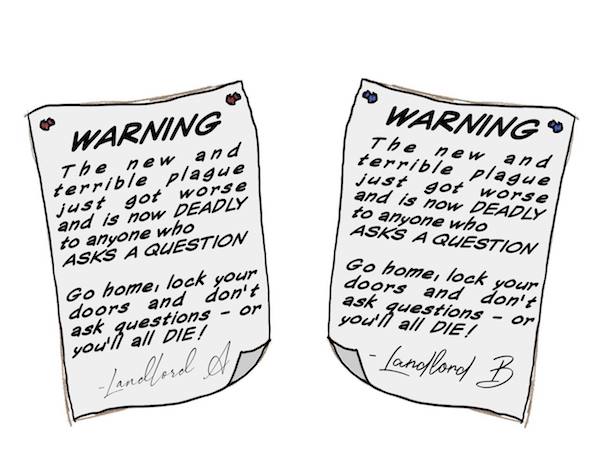

Pierre Kory, MD MPA @PierreKory:
A high quality Sociology journal finally publishes the truth about what happened in Medical Science during Covid.
Phenomenal paper.
Cue censorship by mass media and social media.
Hope Chief Twit starts making changes fast.
• Censorship and Suppression of Covid-19 Heterodoxy (Springer)
Abstract: The emergence of COVID-19 has led to numerous controversies over COVID-related knowledge and policy. To counter the perceived threat from doctors and scientists who challenge the official position of governmental and intergovernmental health authorities, some supporters of this orthodoxy have moved to censor those who promote dissenting views. The aim of the present study is to explore the experiences and responses of highly accomplished doctors and research scientists from different countries who have been targets of suppression and/or censorship following their publications and statements in relation to COVID-19 that challenge official views.
Our findings point to the central role played by media organizations, and especially by information technology companies, in attempting to stifle debate over COVID-19 policy and measures. In the effort to silence alternative voices, widespread use was made not only of censorship, but of tactics of suppression that damaged the reputations and careers of dissenting doctors and scientists, regardless of their academic or medical status and regardless of their stature prior to expressing a contrary position. In place of open and fair discussion, censorship and suppression of scientific dissent has deleterious and far-reaching implications for medicine, science, and public health.


Ouch.
• Fatal Flaw: 42% False Discovery Rate for SARS-CoV-2 nonQ-RT-PCR Test (PR)
We have just published a new study that shows that nonQ-RT-PCR (non-quantitative RT-PCR testing as used to diagnose COVID-19 from 2020 to the present day suffers a flaw that ultimately draws into question all of what has been reported on COVID-19 by official channels, including the results of COVID-19. Specifically, assuming a 5% prevalence rate, the high false discovery rate (42%) of the use of nonQ-RT-PCR means
1. For every 50 true positives out of 1,000, a total of 86 people with or without SARS-CoV-2 infection or residual fragments will be reported. Of these, 36 of these will be false positives.
2. For every 50 true positives, 86 people without SARS-CoV-2 infection or residual fragments will be have to be isolated/quarantined. Of these, 36 will not be infected.
3. For every 50 true positives that are tested and found positive in-hospital, 86 people with or without SARS-CoV-2 infection or residual fragments will be told that they “have COVID-19”. If the 36 false positive patients are hospitalized with other COVID-19 patients, they will likely then contract a SARS-CoV-2 infection.
4. The number of “cases” via positive PCR has been overstated by a factor of 72% (the original post read “80:1” assuming a prevalence of 5%).
5. This is true for generic case reporting up until May 2021 when CDC decided to reduce the PCR cycle threshold value (Ct) for the vaccinated to less than 27, leaving the unvaccinated rate biased by high false discovery rate of arbitrarily high Ct, biasing all reported rates in these two groups favoring cases in the unvaccinated from that point on.
6. This +72% bias is true in any clinical trial or any study that used arbitrarily high Ct values, INCLUDING THE VACCINE STUDIES. As a direct result of this fatal flaw, combined with CDC’s gaff “PCR+ = COVID-19″? There are no credible COVID-19 vaccine trial data.




Rogan list
Where is the list? pic.twitter.com/W0dDdnnTdQ
— Ronald Kelly (@RonK3l) October 31, 2022

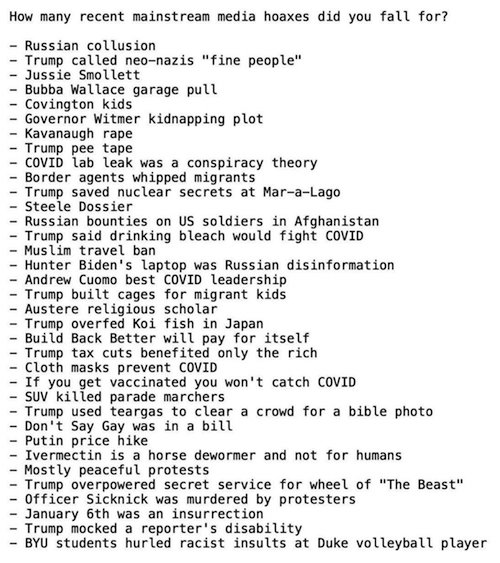

Malone
Dr. Robert Malone, co-inventor of mRNA tech, explained to me that US/UK intelligence agencies are actively using counter insurgency tactics, phycological warfare & blackmail operations against the organized health freedom movement.
FULL: https://t.co/kOoDyglSiY pic.twitter.com/YCIHbuNqdA
— Jeremy Loffredo (@loffredojeremy) October 31, 2022

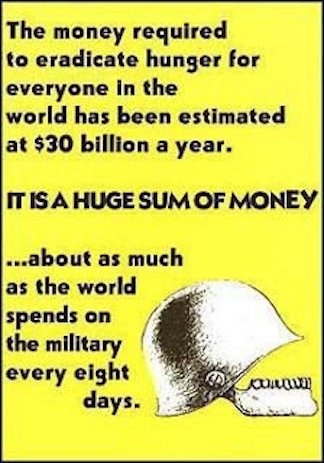


Support the Automatic Earth in virustime with Paypal, Bitcoin and Patreon.





